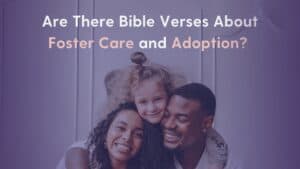When it comes to post-adoption support, churches are an often-overlooked solution. In these unique times of racial injustices and a global pandemic, families search for new ways to respond to the world.
A research company, the Barna Group, shows that practicing Christians are more than twice as likely to adopt. Many adoptive parents identify their faith as the key motivation and source of support in their adoption journeys. Some churches have ministries that care for the most vulnerable in their communities. It is a logical step to bridge the gap between these individual and collective experiences and embrace the scriptural mandate to care for the “orphan and widow” (James 1:27).
Adoption Support
Post-adoption services support families who face the unique challenges of adoption, sometimes long after the adoption finalizes. Adoption is a lifelong commitment requiring support for all members of the adoption sphere —the adoptive parent(s), the birth family, the child, and the siblings. Questions of identity, loss, and trauma can surface at various milestones throughout the lifespan and can impact the adoptee’s spiritual journey. It is through this lens that we work to bring churches in partnership with adoption agencies.
A new conversation is emerging on the effect of adoption on a child’s spiritual understanding and experience. A professor at Lancaster Bible College, Esther Zimmerman (2019), published a paper which focused on four key questions regarding children who have been adopted and their concepts of God. She concludes children who are adopted “wrestle to reconcile teachings about God’s sovereignty and love with teaching about God’s righteousness” (p249). From this, post-placement support is the leading voice to the thousands of children who experience adoption in our faith communities. In addition it supports the ministry leaders who disciple them.
Discipleship
Churches that disciple adoptive children recognize the uniqueness of the adoption experience. They provide spiritually safe places for adoptive families to share with their church family. Journeying together as a faith community with the adoption community allows for a fuller story to be shared. A story that is within God’s story. Collaboration between faith-based child welfare professionals and ministry leaders helps lend support for hard questions. It pushes for a deeper understanding of God in their adoption journey.
When engaging a church community, a commitment to the lifelong journey is essential. As my own adopted children enter their teenage years, the issues faced in childhood have resurfaced with a new developmental milestone. Common questions of faith also echo more deeply in their experience.

- What is truth?
- Can I love and be loved by God?
- Will I be alone?
- What is my personal story?
- Why did this happen?
Equipping the church community to come alongside this long journey provides history, perspective, and a sensitivity to the needs of my family’s soul. This two-way street highlights a joint commitment to each other as we journey forward. Through relationships, a community builds, and through the community, we unearth support for life’s mountaintop and valley experiences. Engaging the church in post-placement supports is a sizable commitment. It reflects the lifelong adoption journey and the ongoing support needed.
Presence
The power of presence is another often overlooked key engagement strategy. Working within the constraints of time is difficult. It requires practicing the spiritual disciplines that move us forward and bring us together. Support comes in many forms, but all require presence. Presence of:
- mind to listen to others
- spirit to lean into what God is speaking
- personal will to act
When working to engage churches, it is essential to recognize that presence requires both emotional and spiritual energy. The time invested has eternal rewards.
Another key to engaging a church in post-placement services is finding a contagiously caring church. Many have written books on Christian hospitality and structures of engagement through various ministries. But more often, if we learn to listen, God enters life’s ordinary moments as we care for one another. Through contagiously caring, Jesus ministered to hundreds. He knelt to heal a blind man, raised people from death, and cares for each of us today. Whether one-on-one or a formulated program—a softened heart to care is essential and a key for post-placement engagement.
Caring Church
While we can debate what contagiously caring churches look like, we face the emerging reality that people desire ministries to correspond with their beliefs, offer opportunity to be personally involved, and care—as Jesus does–for those they serve. A contagiously caring church and a child placement agency may ask simple questions as they walk forward.
- What is the greatest need you feel now?
- Is there something we can do to help be stronger together?
- What on-ramps between the church and agency already exist?
These questions sustain the contagiously caring partnership. It is not only the quantity of the resource, but the quality in which it gives that marks a contagiously caring church (Mark 12:41-44).
After 15 years in child welfare, it has become evident that there is a need for theologically sound, culturally sensitive, trauma-informed support within our faith communities. Staying committed to the lifelong journey will require us to remain present in the difficult times. It will require us to be the contagiously caring person desperately needed today. As we work to provide post-placement support in our changing society, we need to be bold enough to ask hard questions, try, fail, and try again.
















